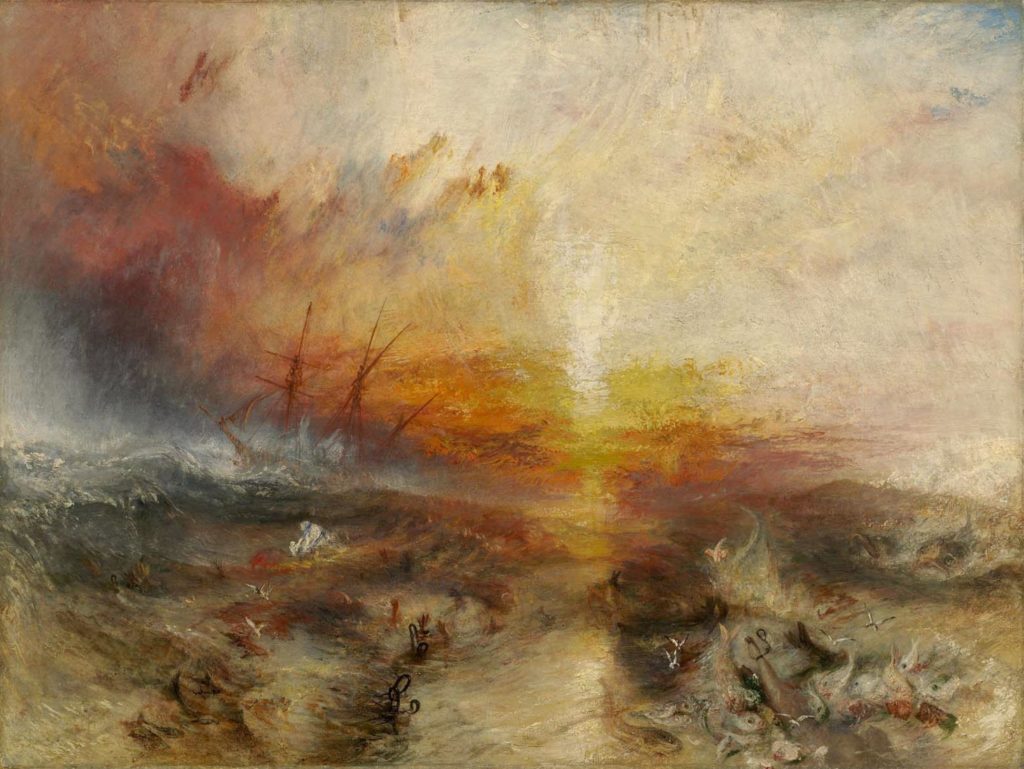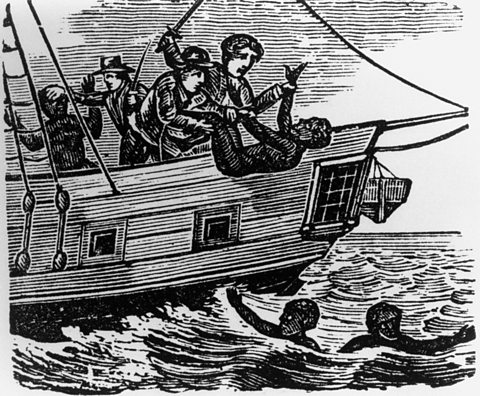|
Getting your Trinity Audio player ready...
|
In 1781, the captain of a Zong slave ship, Caption Luke Collingwood began dumping his cargo overboard, an incident that remains infamous today,
Throughout the annals of history, tales are incredibly terrifying and deeply unjust, often overshadowed by widely known narratives. The Zong Massacre is one story concealed within the depths of the slave trade. It represents an incident that remains largely unknown but holds significance in comprehending the horrifying experiences endured by enslaved Africans and the lasting impact it has had on Black history.
Unraveling the Zong Massacre: A Tragic Tale
Let us delve into this bone-chilling account and explore the known details surrounding the Zong Massacre. It was an event that tragically symbolizes the cruelty and dehumanization suffered by countless Black individuals during one of humanity’s darkest chapters.
The Zong Massacre: What Happened?
In 1781, a British slave ship called the Zong embarked on a journey from Africa with 442 enslaved Africans under the ownership of a Liverpool merchant and captained by Luke Collingwood. The crews loaded more slaves than they had room for, causing much disease and malnutrition.
“Each slave was tied two by two, right foot to left foot, right hand to left hand, and each slave had less room than a man in a coffin,” Sheeran wrote in The Black Slave of England.
No wonder so many slaves were sick and dying, treated like animals, and barely given room to breathe. As they approached Jamaica, the vessel faced an imminent shortage of water and supplies. To exploit their insurance policy for financial gain, both captain and crew made the horrific decision to discard 133 enslaved individuals overboard, deceitfully labeling them as “damaged cargo.”
The Unthinkable Act: Throwing Slaves Overboard
The atrocity committed aboard the Zong triggered widespread public outrage and ignited intense debates regarding its legality. The ship’s owners sought compensation for their supposed loss through insurance claims; however, these demands were swiftly rejected by insurers who argued that those thrown overboard were not mere commodities but human beings deserving compassion. Consequently, this incident led to a highly significant court case known as Gregson v Gilbert, which exposed the brutal treatment endured by enslaved Africans during their treacherous voyage across the Middle Passage.

The Legal Rationale: A Disturbing Precedent
With freshwater reserves severely low, the Zong’s crew decided to throw large numbers of enslaved Africans overboard, not to save their lives but to collect insurance money. By jettisoning the “goods,” they attempt to compensate for their financial losses by portraying the loss of human life as a tragic inevitability.
Moreover, this legal proceeding shed light on an intriguing concept called “jettison.” This principle allowed for disposing of damaged or surplus goods to salvage remaining cargo and preserve ships themselves—a notion employed by Captain Collingwood and his crew members in justifying their actions aboard the ill-fated Zong. Nevertheless, despite utilizing such reasoning before court officials deliberating upon this matter extensively ruled against them—deeming it murder instead—and vindicated insurers’ standpoint that enslaved Africans should never have been classified merely as property or merchandise akin to ordinary trade items.
The Aftermath: A Test Case for Abolitionists
The Zong Massacre has become an interest in Britain, leading to considerable debate and controversy. For people who didn’t own slaves, this was a pivotal moment, as it illustrated the inhumanity and cruelty of their trade.
The Legacy: A Symbol of Injustice
The Zong Massacre isn’t known by many, but it remains a symbol of the inhumanity and cruelty behind slavery. It serves as a way to remember how profit can make humans turn their back on morality.
Unveiling the Hidden Truths
The Zong Massacre is another story left untold in black history. It needs recognition and remembrance because it is proof of the resilience that those who survived the brutality had and serves as a call to action to remember and respect all lives lost during this time.

Conclusion: Acknowledging the Past for a Just Future
As we continue, we must ensure that stories like the Zong Massacre are not forgotten. Acknowledging the past allows us to work towards justice, equality, and dignity for everyone, regardless of skin color.
The movement to abolish slavery in England flourished, and the Anti-Slavery Society was founded in 1823. This was finally accomplished by the abolition of slavery in 1833, much of which was fueled by the first stories of Zon’s terrible voyage.


